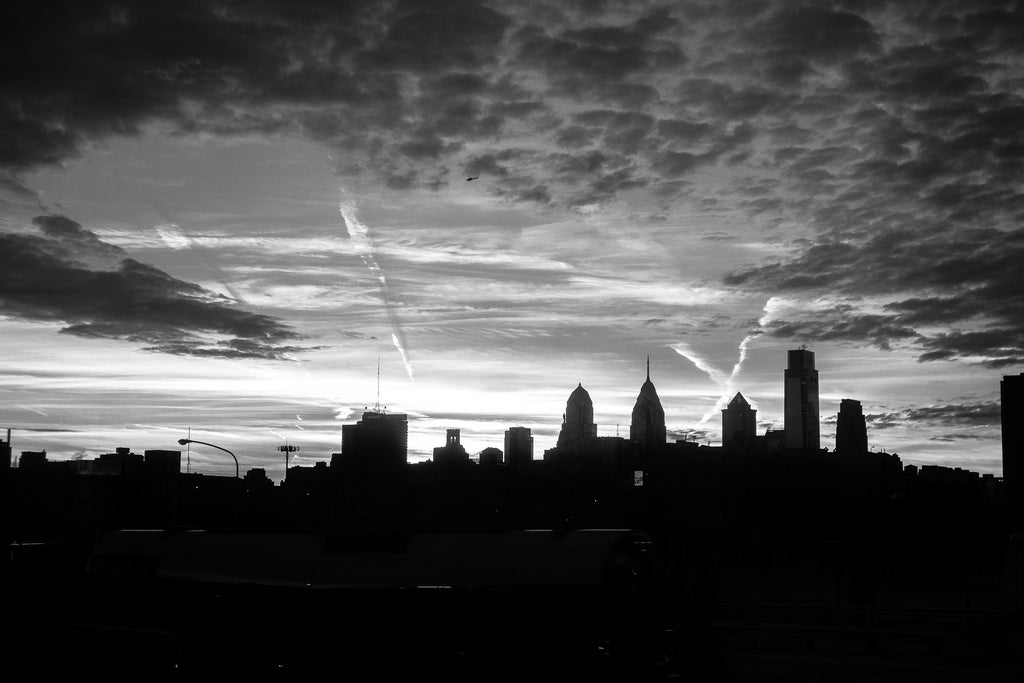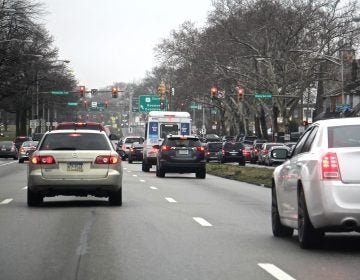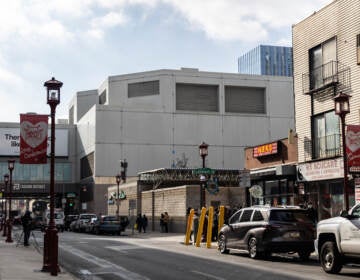Wishing on 2014

Like any year in the life of a city, 2013 was strikes and gutters. On the deep downside Philadelphia’s school funding woes only deepened, a building in the heart of the city was crushed, killing six people, due to a negligent demolition next door, and there was a whole lot of politics as usual accompanied by abysmal voter turnout. Meanwhile the city’s homicide rate was lower than it has been in decades, SEPTA’s doomsday plans were shelved, there are signs of progress in Philly’s delinquency fight, residential construction is rebounding, and some very cool public spaces – pop-up and permanent – captured our attention.
Now that it’s January, we’re afforded a season of resolutions and at least the illusion of a fresh start. So in that spirit, here’s my annual wish list for the city.
Seven wishes for 2014:
Smooth Switch
In 2013 SEPTA stared down a doomsday scenario of shutdowns and service cuts, but by year’s end the state got its act together and passed a transportation funding bill that includes a big chunk of change for mass transit. SEPTA breathed a sigh of relief, and started planning for infrastructure and equipment upgrades. Meanwhile, work to convert SEPTA to New Payment Technologies (NPT) has been chugging along and that’s one thing we’ll be watching closely this year.
SEPTA will make the leap to a “smart card” electronic fare system this year, with new payment technology used for every bus, trolley, and turnstile by the end of the year. Please let the transition to NPT be smooth.
The NPT project is a bit behind schedule, and we hope that’s because SEPTA is working out all of the kinks to ensure that this seismic transit-tech shift will be ready for primetime. Early this year SEPTA will install and test NPT equipment on buses, subways, and trolleys and the system is anticipated to be up and running this fall (followed by regional rail). That means that this year we’ll say farewell tokens, hello “smart cards.” So, SEPTA, get it right, make it easy to use, and we’re with you all the way.
PEDAL POWER:
Philadelphia is planning to launch its bike share program in fall 2014, and I can’t wait. Bike share will put cycling into the routines and commutes of more Philadelphians, improving biking as a transit option for quick trips around town (at least between University City or Temple and greater Center City).
Because Philly is coming late to bike share, we have the opportunity to learn from the successes and shortcomings of bike share programs in other cities. New York City’s incredible CitiBike program, introduced last year, has proven wildly popular but it is not well used by low-income residents. Philly needs to make sure its bike share program is within reach of more, and especially low-income, residents to ensure that cycling is a viable transit option for more people. Otherwise bike share will become another symbol of Philly’s two faces: A city for tourists and the comfortable, and a struggling city inhabited by broke folks. Put bike share within reach of more low-income people and you put more jobs and resources within reach and create a transformative transportation choice. That means bike share needs to be affordable, and there must be alternatives to paying for bike share use with a credit card, which would shut out all too many people.
PUBLIC INFORMATION UNLIMITED:
Philadelphia’s digital presence has been stuck somewhere in the 1990s but in recent years that has been changing. In 2013 a lot of city agencies got shiny new websites that made city government more accessible and put public information at the fingertips of more Philadelphians. More agencies and departments have brand new websites packed with real, actual, useful information like meeting calendars and agendas, permit information, forms and applications. Plus, these sites are being accompanied by new sets of public data being released by the city’s data squad each month, which end up on OpenDataPhilly and often phila.gov/map. Let 2014 bring many more data sets to light, and let’s get more city departments into the 21st century through equipment and web upgrades.
BANK ON IT
After years of anticipation, City Council voted to establish a citywide land bank in late December. (A wish list item of mine for 2012.) This year the Philadelphia Land Bank will be operationalized: Properties will be transferred, a board will be selected, staff and budget set, and its new powers will be tested. This is a critical opportunity to get the Land Bank – perhaps our city’s best hope for blight-fighting and reviving neighborhoods – off on the right foot. I hope city agencies, the board, and public officials will start the land bank off strong by creating a clear strategic plan, putting most of the publicly owned surplus property into the bank, and establish meaningful channels for public input along the way. The costs of failure are too high– in terms of lost tax revenue, the expense of property maintenance, and neighborhood quality of life – for the land bank to flop. Let’s make sure the actions of the land bank board and City Council are held to the strong goals set in the land bank bill for a process that’s transparent, equitable, and accountable. Do this well and we’re off to a good start.
PUBLIC PLAZAS
Two of Center City’s important public spaces will be in varying stages of renovation 2014. This fall a redesigned Dilworth Plaza will reopen outside of City Hall after a massive overhaul at the hands of the Center City District, which will also manage the space, and real plans for the renovations of LOVE Park will hopefully emerge over the next year too. Let’s make sure these spaces stay highly public.
Dilworth Plaza’s transformation from a bleak urban-renewal era hardscape will hopefully bring new life to City Hall’s apron. In fair weather it will have a great lawn, drawing the lushness of the Parkway all the way to City Hall, that will host movies and performances. In winter it will be a skating rink. By making the plaza itself more functional and attractive, more users will feel welcome in this civic space. Highly public uses send a democratizing message, and we hope that Center City District’s management will ensure that democratic uses, like rallies, will be permitted on this precious space now that it is no longer in strictly public control.
This year we’ll likley learn more about LOVE Park’s future too. The city is poised to sell the garage below LOVE Park, prompting the rehab of the plaza above. If City Council President Darrell Clarke, whose district LOVE Park is in, has anything to say about it, about 1/3 of LOVE Park’s landsdcape will be converted to commercial enterprise. Clarke wants to see space rented to seven restaurants to help underwrite the park’s upkeep. That’s voodoo economics at best and I’d love to see a study that suggests how small food operations can simultaneously improve the park, cover the cost of its maintenance, and not become a burden to what is ostensibly a small square at the heart of the city in the center of a tangle of traffic. It also could be laughably tacky. Clarke’s seemingly endless willingness to commercialize public assets comes from a desire to pay the city’s bills – a very worthy goal – but that could come at the price of really cheapening the public realm. Activity is one thing, and raw commerce is another.
Let’s hope the city sells the garage under LOVE Park to the highest, best bidder (currently InterPark, bidding $29.6 million) who will be responsible to upgrade the park. I’d do one better and also require a small percentage of the parking revenue be devoted annually to park upkeep. In 2014 I hope we see more realistic designs for a beautiful public space that elevates the public realm between City Hall and its renewed Dilworth Plaza, and creates a lush link to the Parkway.
SAFE SITES
The tragic demolition-related building collapse at 22nd and Market in June exposed inadequate site safety regulations for demolition and construction activities. City Council members worked up a raft of suggested changes, the Department of Licenses & Inspections is changing its procedures and tightened its reviews. That’s progress. But there’s one thing I really want to see the city get strict on: Philly should require stricter site safety measures for all significant rehab/construction/demo projects. It should not have been left to the demo contractors or the Salvation Army to choose whether or not to erect sidewalk bridging and temporary protections to ensure that the sidewalk and neighboring buildings were braced and shielded from harm. That should be a fundamental requirement. And the city should have the ability (through staffing/budget increases to L&I) to monitor every single one of these projects more carefully.
REFORMERS, HOLD FAST
My colleague Jared Brey wrote about reform fatigue in his zoning/development roundup in his reflections on 2013. Fatigue is setting in, but I wish for everyone who gives a damn about this city to hold fast and fight on.
The Nutter Administration rode into power on a reform vote, and did much despite an economic downturn and poor relations with City Council. Its days are numbered. If any of the positive strides made under this administration when it comes to urban planning and sustainability are to outlast its remaining two years in office, they need to be institutionalized and the public needs to demand that they live on.
The Planning Commission came back to life under Nutter and it’s got plenty of zoning remapping and district planning left to do. We’d hate to see it reduced to a more anemic version of itself again.
The Water Department’s Green City, Clean Waters plan for green stormwater management is going to stick around because it’s part of an agreement with the Environmental Protection Agency. Others plans, programs, and initiatives – like bike share, pedestrian plazas and parklets, or even the Greenworks plan – could be more vulnerable to having the plug pulled. Some folks see these sort of things as frivolous window dressing on a struggling city, whose resources are too precious to be spent on this nonessential stuff. But these are just the kinds of small, powerful things that help lift a city up.
Political powers and party machinists who want Nutter and his kind out are wishing on a “strong” mayor again. Last year I heard one operative decry “reformers” and long for a new Frank Rizzo after a public meeting. If that future scares you, I implore you stay tuned in. And, while you’re at it, find a good candidate for mayor. Now’s not the time to let fatigue get the best of you.
WHYY is your source for fact-based, in-depth journalism and information. As a nonprofit organization, we rely on financial support from readers like you. Please give today.








